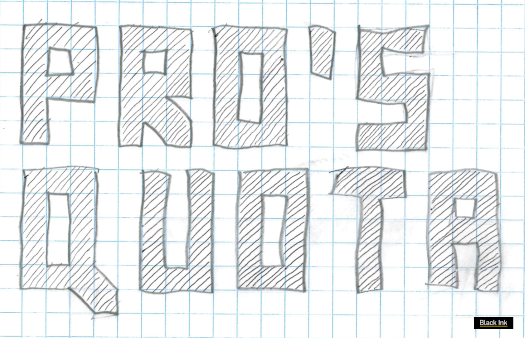Pro's Quota: Minding Your P's And Q's With CRM
by Black Ink Team

For an independent equipment dealer, selling to their professional customers is a bit more trepidatious than selling to their homeowner customers. This is because if they lose a homeowner customer it will only mean a handful of pieces of equipment at most not getting sold, but if they lose a professional customer it might leave a significant dent in their business for years to come. Professional customers buy substantial amounts of equipment year after year, and not cheap pieces of equipment either. Therefore, a mindful approach is required to handle relationships with professional customers effectively, one that involves planning for the future and inspecting the past. A tool that can make this easier for dealers is CRM.
A CRM at its core is a data platform that lets you store customer information, but it is more than a glorified address book. Way more. One of the most useful features of a CRM is when it aggregates customer information for you, telling you what most of your customers have in common so that you can glean insights that help you attract more. Another useful feature of a good CRM is territory management. Most of the time, salespeople work on commission, and it can tempt them to try and land accounts that really belong to other coworkers. CRM territory management features let sales managers divide leads based on multiple factors, so that sales team members only see accounts which they have permission to sell to.
To keep professional customers coming back, your work needs to be consistent. That means always having enough in stock when it comes time for them to pick up new equipment, always contacting the right position at the company using their preferred mode of contact, and always applying fleet discounts when they are eligible. Without a CRM, it can be enormously difficult to keep track of all the detail.
Additionally, to keep professional customers interested in your dealership you must 'sweeten the deal' by adding a personal touch to the relationship. Regular homeowner customers do not expect personalized treatment whenever they buy equipment, but professional customers do. As large amounts of money is changing hands, professional customers want a direct line to someone whom they know and trust at the dealership, in case something goes wrong with one of their orders. But, treating every professional customer differently adds a lot more complexity - having a CRM, however, to keep track of all the minutia that goes into every deal is useful for making each deal feel personalized.
In the B2B space, companies are always trying to lure professional customers away from their competitors (since they represent a steady source of revenue). Consequently, to keep them from taking their business elsewhere, professional customers take it as a given that the dealer they go to is going to attempt impressing or satisfying them in some additional way. With a CRM, you can log all the bonuses (special discounts, promotional items, catered events, etc.) that you give to your professional customers. This helps you to a) stay apprised of what's working and b) brainstorm new tactics that you haven't tried yet.
Professional customers mean a lot to dealers, and the opposite is true as well - dealers mean a lot to professional customers. Take an arborist, for example: when business starts picking up in the spring and competition gets fierce, it can provide them with peace of mind to know where they can get quality chain saws at a reduced price, at short notice. It is important to note, too, that dealers can be a channel through which professional customers can more easily speak to the manufacturer. Say they have a problem attaching aftermarket parts and they want the next model to address that issue; a dealer has a much simpler time getting the attention of a manufacturer than an end user does.
Finally, two perennial problems that CRM fixes are onboarding and succession. Customer information can be stored in a variety of ways, but the best way is in a CRM because then it is all in one place. When adding or 'onboarding' a new salesperson it can be difficult to get them up to speed with your data management protocols - CRM makes this easier by providing an overall structure and strategy for every bit of sales data a company uses. Imagine explaining to a new hire that you use a multitude of separate and unique systems: one for customer names and one for customer phone numbers and one for customer addresses and another one for customer emails.... CRM makes things less complicated. When a succession takes place (a new boss gets promoted or hired), they may want to start doing things their own way. If that is the case, then having a CRM in place means they will just have one place to remove all the pieces from.
